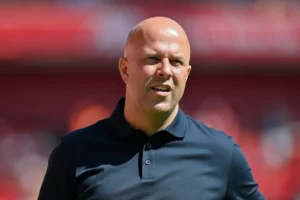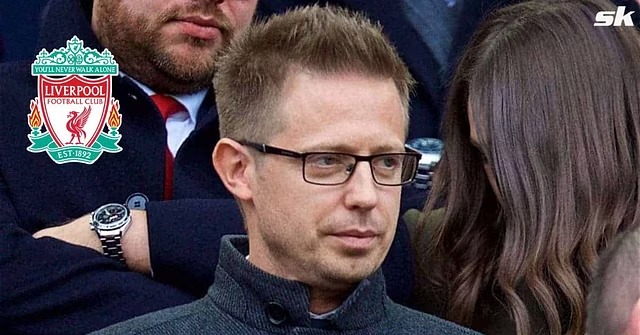Liverpool has reintroduced a transfer trick from the first Michael Edwards era under Jurgen Klopp, with the data guru’s influence being seen in his new role with FSG.
Liverpool has yet to make a transfer this summer. Nonetheless, the new-look recruitment department built by the returning Michael Edwards has managed to resuscitate a key trick from Jurgen Klopp’s tenure.
Technically, Edwards is not returning to Liverpool, but rather joining FSG. It is envisaged that he will be handed leadership of a future multi-club operation, but his “CEO of football” role also includes Anfield.
And he has played a significant role in determining the club’s destiny following Klopp’s departure. He is said to have played a role in finding Arne Slot as the best candidate, and his fingerprints can be seen in other personnel changes.
Richard Hughes, the new sporting director, was an Edwards hire. And the trainee is already showing symptoms of mimicking his master.
The only major item of confirmed business this summer is in the outgoing column. Liverpool sold Fabio Carvalho to Brentford for a sum of up to $36 million (£27.5 million/€32 million).
Based on the state of the gossip columns, it’s likely that there will be more sales before any incoming signings are confirmed. Sepp van den Berg appears to be nearing a move — potentially also to Brentford — that could net Liverpool $26m (£20m/€22m) or more.
Both are good players, and proved it to Slot in preseason. But they would have had a hard time moving to the top of the pecking order at Anfield, and Liverpool has been able to hold out for top dollar.
Perhaps Brentford is becoming to Hughes what Bournemouth was to Edwards. Liverpool developed a highly lucrative partnership with the south coast club, generating significant money on transactions for Jordon Ibe, Brad Smith, and Dominic Solanke.
However, regardless of which players are sold, Liverpool appears to have returned to supporting its transfer activity by astutely moving on those on the periphery. The Reds have made a point of only signing talents who can visibly benefit the first team, and they don’t come cheap – this self-sustaining model is the only way the squad can continue to improve.
Klopp’s trophy haul serves as proof that the model is viable. Naturally, that period of triumph cannot be divorced from the German’s genius, but he would be the first to admit that he was surrounded by some very exceptional players.
Of course, some of the major purchases followed the uncommon selling of a genuine first-team player, Philippe Coutinho. Even that demonstrated Edwards’ extraordinary ability to maximize value.
However, subsequent squad changes, particularly in preparation for the 2022 cup double, were largely funded by periphery departures. In addition to all of the sales to Bournemouth, Edwards profited handsomely from Rhian Brewster, while Harry Wilson and Danny Ward also sold nicely.
Whether directly or indirectly, this helped fund moves for Diogo Jota, Thiago, and Kostas Tsimikas. To a greater or lesser extent, everyone contributed to future success, with the Portuguese forward in particular seeming set to play a major role in the Slot era.
The rediscovery of this Edwards transfer trick is a critical step toward keeping Liverpool at the top of the game. The next step is to reinvest the money, and the jury is still out on Hughes.
Liverpool.com says: The new-look Liverpool recruitment team put together by Edwards already has selling down to a tee, which perhaps should be no surprise. The next test will obviously be buying.
Edwards was unerringly good at both in his first stint with the club, hardly ever missing with his choices. And in truth, that’s a necessity at Liverpool, where margins for success are wafer thin.
Overall, it may be beneficial for Liverpool to wait, given the high cost of making the wrong buy. However, failing to reinvest the money at all would be a mistake, as the Reds want to remain competitive.
